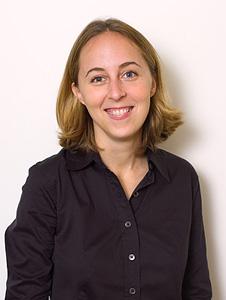December 17, 2009
AMHERST, Mass. — Hilary J. Moss, assistant professor of history and black studies at Amherst College, has published Schooling Citizens: The Struggle for African American Education in Antebellum America (University of Chicago Press, 2009, $37.50). The book sheds new light on the efforts of black Americans to get an education in the early 19th century in spite of white attempts to withhold opportunity. In telling this story, Moss writes a new chapter in the thorny history of America’s educational inequality.
 |
According to Schooling Citizens, as common schooling emerged in the 1830s and provided white children of all classes and ethnicities with the opportunity to become full-fledged citizens, it redefined citizenship as synonymous with whiteness. This link between school and American identity, Moss argues in the book, increased hostility among whites about educating blacks at the same time that it spurred African Americans to demand public schooling. Complicating matters was the fact that education for blacks in the antebellum United States, she explains, was a means of securing status as full and equal members of society.
To get a better handle on the situation faced by African Americans in the country at that time, Moss looked at the experiences of residents in the early 19th century in three very different cities: Baltimore, Boston and New Haven, Ct. While white residents of antebellum Boston and New Haven forcefully opposed the education of black residents, her studies found, their counterparts in slaveholding Baltimore did little to resist the establishment of African American schools in their cities. Such discrepancies, she says in Schooling Citizens, suggest that white opposition to black education was not a foregone conclusion. Through the comparative lenses of these three cities, she shows in Schooling Citizen why opposition erupted where it did across the United States during the same period that gave rise to public education.
“In Schooling Citizens Hilary Moss makes a splendid contribution to the history of race relations in the antebellum period,” commented Carl Kaestle, university professor emeritus and professor emeritus of education, history and public policy at Brown University. “The cases [Moss studied] require careful analysis because they defy easy generalizations about the legacy of slavery or regional differences. The result is a nuanced view of the attitudes that swirled around white opposition to black education in these years; what conditions, in contrast, fostered black education; and what was at stake for African Americans.”
“I cannot think of any other book that is like Schooling Citizens, which makes an important contribution both to the historiography of African Americans and to the history of education in America,” added Shane White, Challis Professor of American History at the University of Sydney. “Well-written and well-argued, this book is an original contribution to scholarship.”
A historian of education and the African American experience, Moss is interested in understanding how communities decide who they will and will not educate. In addition to her studies on educational disparities, Moss teaches courses on African American experience from the slave trade to the present. She earned her a bachelor’s degree from Northwestern University and a master’s and doctorate from Brandeis University.
More information about Schooling Citizens can be found at www.press.uchicago.edu.
###